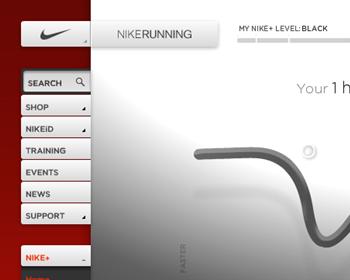I’ve just bought some music.
With my backside planted firmly in a relatively comfortable seat and my eyes locked to a computer screen, I’ve just pointed, clicked and now own another album. Before I bought it I read some recommendations, turned my desktop machine into a listening post to preview what I was buying and then a couple of clicks later I was the proud owner of Roisin Murphy’s new album.
It might not be quite the same as actually owning a physical copy of the CD (or vinyl for that matter), but there’s a certain satisfaction to be gained from by getting what you want when you want it. Online music buying is no longer in its infancy, as a nation we’re all MP3 totin’ web surfing media hoarders and it’s thanks to online music stores we are putting our money where our ears are.
But who are the major players in the online music stakes and how does this online music thing work anyway?
As it stands there are essentially two different “models” of business to which the online stores adhere. Apple’s Music Store for example charges you a one off fee to physically download a copy of a track you want or ?7.99 for the full album. You can drop this copy on to your iPod and move it between five “authorised” computers. This is a move that all and sundry have taken to prevent the unauthorised copying of music, after all kids let’s remember piracy is…ahem…killing music.
The second model is one that is adapted by just about everyone else in the field (Sony, Napster, Virgin, HMV and a raft of others). In this scenario rather than buy each song or album as an outright purchase you sign up for an account and pay a fixed monthly fee (in most cases ?9.99 per month). These fees enables you to download what you want without restriction and quickly build up an enviable library on your laptop or desktop machine. However just before you start thinking that you can have your cake and eat it, there is a slight penalty to pay for having such unadulterated freedom. If for whatever reason you cancel your account with your alternative provider then your newfound collection is deactivated. Yes, the vast arsenal of tunes you’ve just chucked on your machine becomes dead space until you start paying your fees again.
So looking at the difference between the two models which one works best. Well if you sign up for Napster, HMV or Virgin you’d best not be an iPod owner. Apple’s closed model of working means that they can’t support anything Apple based. So if you’re an iPod owner you are stuck pretty much with the iTunes Music Store.
In terms of ease of use all the providers have their own software for downloading, burning and playback. Once again iTunes does seem to have the edge in this department mainly because it’s a more mature piece of software, visually more pleasing and less “clunky” than its counterparts. However in terms of actual features they are all pretty evenly matched.
Looking at the actual selection Apple once again wins out, although the other companies all offer roughly a million tracks each Apple have cornered the market with exclusives from the likes of Madonna, audio books from the ever popular J.K Rowling and with the recent release of the video iPod a selection of television and pop video releases.
In conclusion it seems the fact that Apple had the march on the competition has set it up with an edge that is going to take some beating for now, and while the competitors are being…well…competitive with their offerings, they are playing catch up with a brand that has an established lead in both the hardware and software aspects of the equation and a quality service to offer at the same time.


